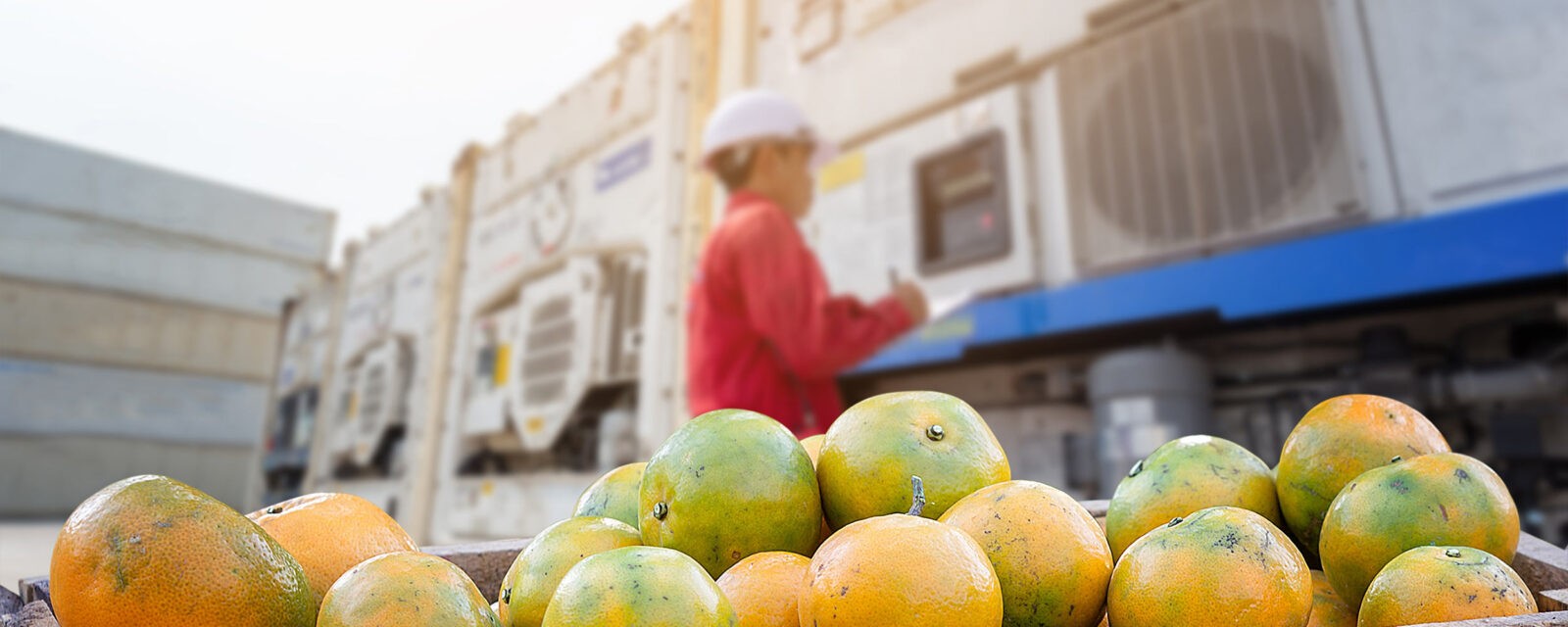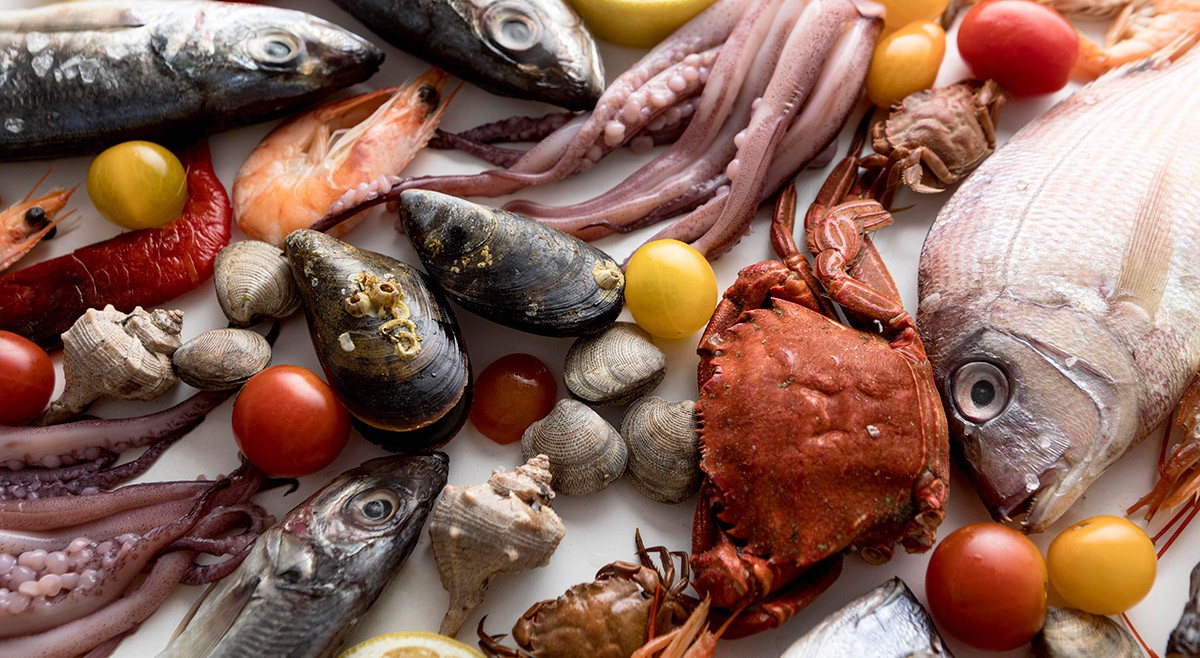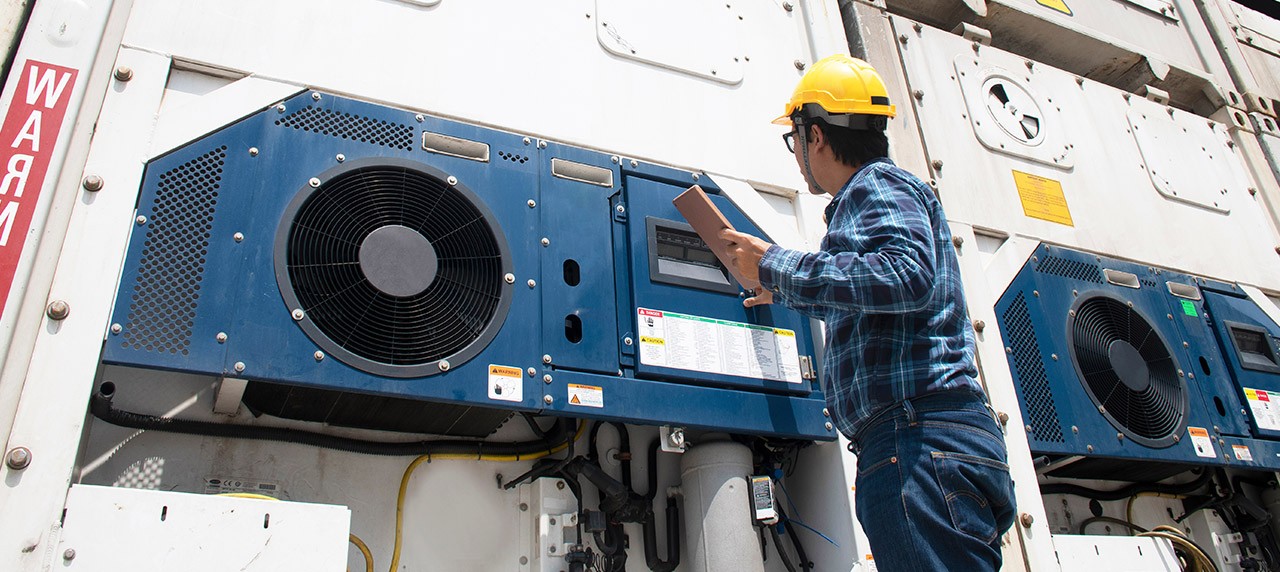
Shipping food and temperature-sensitive products internationally requires meticulous planning and cold-chain logistics expertise. The cold chain refers to transporting and storing perishable goods under controlled conditions.
Whether you’re shipping frozen food, delicate confectioneries, or other products requiring specific temperature maintenance, you must partner with a reliable freight forwarder who understands the intricacies of this specialized transporting and storing process.
Types of Temperature-sensitive Products

Regarding shipping food internationally, various products fall under the temperature-sensitive category. Here are some types of products commonly shipped internationally:
Fresh Produce
Fresh produce, including fruits and vegetables, is highly perishable and requires careful handling during shipping. Degree control is crucial to preserve these items’ nutritional content, flavor, and appearance.
Proper packaging, such as breathable containers or protective coatings, can help maintain optimal humidity levels and prevent physical damage. Rapid transport and efficient cold chain management are essential to ensure that fresh produce reaches its destination in peak condition.
Frozen Food
Frozen food items, such as frozen fruits, vegetables, meats, and prepared meals, must be kept at consistently low temperatures to prevent thawing and maintain their frozen state. Specialized packaging, such as insulated containers and dry ice, is often used to support the required degrees throughout shipping. Strict adherence to protocols and swift delivery are vital to ensure frozen products arrive in excellent condition and retain their texture, taste, and nutritional value.
Dairy and Seafood
Delicate dairy products, including milk, cheese, and yogurt, are susceptible to temperature fluctuations. They require refrigeration to prevent spoilage and maintain their freshness.
Seafood, such as fish, shrimp, and shellfish, is highly perishable and prone to bacterial growth if not handled correctly.
Specific temperature storage and specialized containers with insulation and airflow are necessary for transportation. Maintaining the cold chain from production to delivery is crucial to ensure that dairy and seafood products arrive in optimum condition, free from spoilage or contamination.
From fresh fruits and vegetables to dairy products, seafood, and pharmaceuticals, these perishable items require careful handling to maintain their quality and freshness throughout transportation. Each product may have unique temperature requirements, which should be strictly adhered to during shipping to avoid spoilage and maintain safety standards.
Challenges in International Food Transportation: Documentation and Processes
Transporting temperature-sensitive food products across borders poses several challenges. One significant hurdle is the complex documentation and processes involved.
Regulatory Compliance
Each country has regulations concerning importing and exporting food products. Understanding these regulations is crucial to ensure a smooth customs clearance process. Navigating these regulations ensures compliance and avoids delays or issues during customs clearance. For example:
- France: Has strict labeling requirements for genetically modified foods, aiming for transparency and informed consumer choices
- China: Imposes import bans on certain fruits and vegetables to prevent the entry of potentially harmful pests or diseases
- Brazil: Requires specific health certificates for animal products to ensure proper hygiene and disease control during transport
Documentation
Accurate and complete documentation, including certificates of origin, health certificates, and permits, is essential to comply with international trade requirements and expedite the shipping process. Complete and accurate documentation expedites shipping and ensures compliance with international trade regulations.
Additionally, maintaining consistent temperature control during transit, overcoming potential logistical issues, and mitigating the risk of spoilage are critical factors that must be addressed.
Additional Services You May Need

When shipping temperature-sensitive goods, there are additional services that you may require to ensure a smooth and successful transportation process. These services go beyond the basic logistics of moving your cargo and address specific needs associated with perishable items. Here are a few additional services you may need to consider:
Custom Clearance
Navigating the customs clearance process can be time-consuming and daunting. A reputable freight forwarder can assist you with the necessary documentation and ensure a smooth customs clearance process, helping you avoid unnecessary delays.
Cargo Fumigation
Some countries require cargo fumigation as part of their import regulations. Reputable freight forwarders offer cargo fumigation services to help you comply with these requirements, ensuring your products meet the necessary health and safety standards.
Critical Factors for Shipping Reefer Cargo: Ensuring Optimal Conditions
Regarding shipping reefer cargo, several key factors are crucial in ensuring optimal conditions for transporting perishable goods. By carefully considering these factors, you can maintain your temperature-sensitive items’ freshness, quality, and integrity throughout the journey. Let’s explore these critical factors in detail:
Temperature
Maintaining the correct temperature is critical when shipping reefer cargo. Containers like reefers have advanced cooling systems for precise degree control. This ensures that perishable goods, such as food products, remain at the optimal conditions throughout the journey. The goods’ freshness, taste, and quality are safeguarded by preserving the required degree range.
Ventilation
Proper airflow and ventilation within reefer containers play a crucial role in regulating temperature and preserving the quality of the cargo. Efficient airflow helps distribute cold air evenly, preventing hotspots and ensuring consistent conditions throughout the container.
Additionally, it aids in removing excess carbon dioxide and ethylene gas emitted by the cargo. Ethylene gas, in particular, can accelerate the ripening process of certain fruits and vegetables. By maintaining adequate ventilation, the risk of premature ripening and spoilage is minimized.
Humidity
The ideal humidity level within a reefer container is vital for preserving the texture and quality of temperature-sensitive goods. Excessive moisture or dryness can have detrimental effects on certain products. For instance, high humidity levels may lead to mold growth or product deterioration, while low humidity can cause dehydration and loss of quality.
Maintaining the appropriate humidity level within the container helps ensure that perishable goods, such as fruits, vegetables, and seafood, retain their desired moisture content, appearance, and taste.
Drainage
Reefer containers are designed with adequate drainage systems to prevent excess moisture accumulation. Proper system is crucial to minimize the risk of spoilage or damage to the cargo. It ensures that any condensation or melting ice within the container is efficiently drained away, preventing water buildup that could lead to product deterioration or contamination. Adequate drainage helps maintain the integrity and freshness of the goods during transit, reducing the likelihood of quality issues upon arrival.
Understanding the Rules and Regulations

Compliance with rules and regulations is crucial when shipping temperature-controlled freight, as various factors, such as dry ice or the nature of the imported items, can impact the requirements. One important consideration is that dry ice is classified as a hazardous material, and the specific rules and regulations differ based on the quantity used in the package.
For shipments weighing below 5.5 lbs. in the United States (assuming non-hazardous items), minimal package markings, such as labeling the package as containing “dry ice,” are typically sufficient. Depending on the mode of shipment chosen, packages containing dry ice and weighing more than 5.5 lbs. must adhere to either the rules outlined in Title 49 of the Code of Federal Regulations or the rules established by the International Air Transportation Association.
Moreover, shipments involving pharmaceuticals, diagnostic specimens, biological specimens, or chemicals are subject to additional regulations. These may include adhering to FDA, DEA, and federal hazardous materials regulations.
Compliance requires a clear understanding of applicable rules and regulations for your shipment. Working with an experienced shipping company can be beneficial, as they possess expertise in navigating these intricacies and can assist you in complying with the requirements before sending your shipment.
By familiarizing yourself with the rules and regulations or seeking assistance from a reputable service provider, you can ensure that your temperature-controlled shipments meet the necessary compliance standards and are transported safely and legally.
Shipping food and temperature-sensitive products internationally demands attention to detail, adherence to regulations, and the support of a reliable freight forwarder. By partnering with Atlantic Project Cargo, you gain access to their expertise in cold chain logistics and their commitment to ensuring the safe transportation of your perishable goods.
Read More



